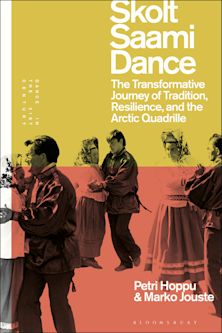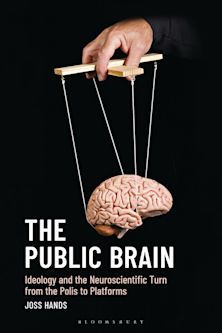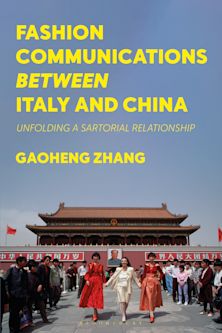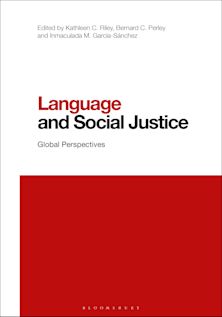- Home
- ACADEMIC
- Anthropology
- Cultural Anthropology
- The Anthropology of Sport and Human Movement
The Anthropology of Sport and Human Movement
A Biocultural Perspective
Robert R. Sands (Anthology Editor) , Linda R. Sands (Anthology Editor) , Jon Entine (Contributor) , Bernd Heinrich (Contributor) , Clifford Geertz (Contributor) , Robert Scott (Contributor) , Greg Downey (Contributor) , Vilma Charlton (Contributor) , Dirk Lund Christensen (Contributor) , Loren Cordain (Contributor) , Søren Damkjaer (Contributor) , Joe Friel (Contributor) , Rachael Irving (Contributor) , Kerrie P. Lewis (Contributor) , Peter G. Mewett (Contributor) , Andy Miah (Contributor) , Timothy Noakes (Contributor) , Yannis P. Pitsiladis (Contributor)
The Anthropology of Sport and Human Movement
A Biocultural Perspective
Robert R. Sands (Anthology Editor) , Linda R. Sands (Anthology Editor) , Jon Entine (Contributor) , Bernd Heinrich (Contributor) , Clifford Geertz (Contributor) , Robert Scott (Contributor) , Greg Downey (Contributor) , Vilma Charlton (Contributor) , Dirk Lund Christensen (Contributor) , Loren Cordain (Contributor) , Søren Damkjaer (Contributor) , Joe Friel (Contributor) , Rachael Irving (Contributor) , Kerrie P. Lewis (Contributor) , Peter G. Mewett (Contributor) , Andy Miah (Contributor) , Timothy Noakes (Contributor) , Yannis P. Pitsiladis (Contributor)
You must sign in to add this item to your wishlist. Please sign in or create an account
Description
The evolution of the human species has always been closely tied to the relationship between biology and culture, and the human condition is rooted in this fascinating intersection. Sport, games, and competition serve as a nexus for humanity's innate fixation on movement and social activity, and these activities have served throughout history to encourage the proliferation of human culture for any number of exclusive or inclusive motivations: money, fame, health, spirituality, or social and cultural solidarity.
The study of anthropology, as presented in Anthropology of Sport and Human Movement, provides a scope that offers a critical and discerning perspective on the complex calculus involving human biological and cultural variation that produces human movement and performance. Each chapter of this compelling collection resonates with the theme of a tightly woven relationship of biology and culture, of evolutionary implications and contemporary biological and cultural expression.
Table of Contents
Product details
| Published | Oct 11 2010 |
|---|---|
| Format | Ebook (PDF) |
| Edition | 1st |
| Extent | 1 |
| ISBN | 9798881885540 |
| Imprint | Lexington Books |
| Publisher | Bloomsbury Publishing |
About the contributors
Reviews
-
To date the Anthropology of Sport has been dominated by accounts that have emphasized the social and cultural dimensions of such activities. This volume makes a significant contribution to the Anthropology of Sport through the development of a more systematic biocultural approach to sporting activities. What is particularly exciting about this volume is that the authors have been encouraged to explore the interactive and dynamic relationship between culture and biology in such a variety of ways and from such a variety of positions. Framed by Geertz's account of the importance of a concept of culture for human evolution, even while moving well beyond this early attempt, the ethnographic papers in this volume are theorised with a keen sense of the biocultural complexity of human movements. This book will find a place on bookshelves of all of us interested in the meanings and organization of human movement in social life.
Philip Moore, Curtin University of Technology, Australia
-
The Anthropology of Sport and Human Movement moves the discussion about the role of sport in human society to a new level, integrating the latest findings of biogenetics and physiology with the insights regarding sport as a cultural phenomenon. The collection is a breakthrough for the discipline, a gold mine of ideas for future research, and important reading for everyone who appreciates and takes seriously the study of human movement, sport, and play.
Kendall Blanchard, Georgia Southwestern State University
-
The editors of this volume want to promote an anthropology of sport and, in particular, advocate a biocultural approach to the subject. To that end, they have gathered 13 articles arranged in four sections. The book first presents foundational thinking on sport, play, and the concept of "man" (the latter in a Clifford Geertz reprint). There follow sections on the evolution of human running, the role of race in sports (principally running), and the final mix of topics on exercise, pain, and ineptness (among Paleolithic athletes, contemporary hunter-gatherers, and Brazilian capoeira practitioners, as well as in pain management systems of the future). While claiming interest in sport and human movement broadly understood, the articles show a major emphasis on running. Similarly, while the stated aim is to show the intersection of the biological and cultural, the more complex data, sophisticated analyses, and general awareness of recent scholarship lay on the biological side. This orientation can be explained in part by the disciplinary spread of the authors: three are anthropologists while other work the fields such as sociology, biology, health and exercise, medical science, international health, and business.
Choice Reviews

ONLINE RESOURCES
Bloomsbury Collections
This book is available on Bloomsbury Collections where your library has access.



































